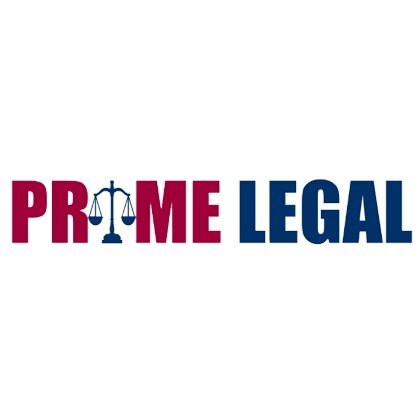Best Natural Resources Lawyers in Kathmandu
Share your needs with us, get contacted by law firms.
Free. Takes 2 min.
List of the best lawyers in Kathmandu, Nepal
About Natural Resources Law in Kathmandu, Nepal
Kathmandu, the capital city of Nepal, is nestled in the lush Kathmandu Valley and surrounded by rich natural landscapes. The region's natural resources include forests, mineral deposits, water resources, and diverse wildlife. Management and utilization of these resources are governed by various laws and regulations intended to ensure sustainable use and environmental protection. Natural Resources Law in Kathmandu encompasses a wide range of areas including land use, water rights, mining activities, forestry regulation, and environmental conservation. Understanding these laws is essential for individuals and businesses engaged in utilizing these natural resources.
Why You May Need a Lawyer
Legal assistance in the field of Natural Resources may be required in several common scenarios:
- Disputes over land ownership or use, particularly agricultural or forest lands.
- Permitting and compliance issues related to extraction industries such as mining or logging.
- Negotiating and drafting contracts for resources extraction or management.
- Environmental compliance issues, including adherence to both national laws and international practices.
- Resolving conflicts involving water usage rights or disputes over water sources.
- Community consultation processes, particularly in relation to indigenous land rights.
- Legal challenges related to wildlife conservation efforts.
Local Laws Overview
Kathmandu falls under the jurisdiction of Nepalese national laws governing Natural Resources. Key legal frameworks include:
- The Constitution of Nepal, which provides for environmental protection and sustainable use of natural resources.
- The Forest Act, which deals with the management, conservation, and use of forest resources.
- The Mines and Minerals Act, regulating mining operations and concession agreements.
- The Water Resource Act, governing water use rights and management of water sources.
- The Environment Protection Act, addressing environmental impact assessments and pollution controls.
- The National Parks and Wildlife Conservation Act, focusing on the protection of biodiversity and wildlife habitats.
These laws are designed to balance economic development with ecological sustainability and social equity.
Frequently Asked Questions
What permits are required for mining activities in Kathmandu?
To conduct mining activities, one must obtain a mining license from the Department of Mines and Geology. Environmental impact assessments and community consultations are usually required.
How are water rights determined in Kathmandu?
Water rights are based on the Water Resource Act, which prioritizes drinking water, irrigation, and hydropower. Rights are generally allocated by the government, considering local needs and ecological balance.
What are the legal implications of deforestation in Nepal?
Unauthorized deforestation is illegal and penalties include fines and imprisonment. Forest management plans must align with the Forest Act to ensure sustainable usage.
Can foreign entities own natural resources in Kathmandu?
While foreign entities can invest in natural resources, ownership and exploitation rights are strictly regulated and typically require joint ventures with local entities.
What is the process for resolving land disputes in Kathmandu?
Land disputes are commonly resolved through negotiation, mediation, or legal proceedings in courts. Local administrative bodies often play a role in dispute resolution.
How are environmental impact assessments conducted?
An EIA is conducted through the Ministry of Environment which evaluates potential environmental effects of proposed projects and seeks public and expert consultation.
Are there incentives for renewable energy projects?
The government offers incentives such as subsidies, tax exemptions, and guaranteed purchase agreements for renewable energy projects, under the Energy Efficiency Strategy.
How does Nepal address illegal wildlife trade?
Nepal has stringent laws against illegal wildlife trade, including the National Parks and Wildlife Conservation Act, with penalties ranging from fines to imprisonment.
What role do local communities play in managing natural resources?
Local communities are increasingly involved through community forestry programs and public consultations, aimed at ensuring equitable resource management and benefit sharing.
How can one initiate a conservation project in Kathmandu?
Initiating a conservation project requires collaboration with local authorities, obtaining necessary permits, and aligning with national and regional conservation strategies.
Additional Resources
To further assist in understanding and navigating the complexities of Natural Resources Law in Kathmandu, the following resources can be helpful:
- Ministry of Forests and Environment: Central body for environmental policies and regulation.
- Department of Mines and Geology: Oversees mining regulations and licensing.
- Kathmandu District Forest Office: Manages local forestry activities and permits.
- Legal Aid Clinics: Often offer free or affordable legal advice for community members.
- NGOs such as WWF Nepal and ICIMOD: Provide resources and advocacy for sustainable resource management.
Next Steps
If you require legal assistance concerning Natural Resources in Kathmandu:
- Identify the specific legal issue or type of resource involved.
- Gather relevant documents, permits, and any correspondence related to the issue.
- Consult with local experts or legal professionals specializing in environmental and natural resources law.
- Contact relevant governmental bodies to understand applicable regulations and processes.
- Consider mediation or negotiation as initial steps before pursuing formal legal action.
- Stay informed about changes in laws and regulations related to natural resources in Nepal.
Taking these steps will help ensure a comprehensive and informed approach to resolving natural resources-related legal matters.
Lawzana helps you find the best lawyers and law firms in Kathmandu through a curated and pre-screened list of qualified legal professionals. Our platform offers rankings and detailed profiles of attorneys and law firms, allowing you to compare based on practice areas, including Natural Resources, experience, and client feedback.
Each profile includes a description of the firm's areas of practice, client reviews, team members and partners, year of establishment, spoken languages, office locations, contact information, social media presence, and any published articles or resources. Most firms on our platform speak English and are experienced in both local and international legal matters.
Get a quote from top-rated law firms in Kathmandu, Nepal — quickly, securely, and without unnecessary hassle.
Disclaimer:
The information provided on this page is for general informational purposes only and does not constitute legal advice. While we strive to ensure the accuracy and relevance of the content, legal information may change over time, and interpretations of the law can vary. You should always consult with a qualified legal professional for advice specific to your situation.
We disclaim all liability for actions taken or not taken based on the content of this page. If you believe any information is incorrect or outdated, please contact us, and we will review and update it where appropriate.

















